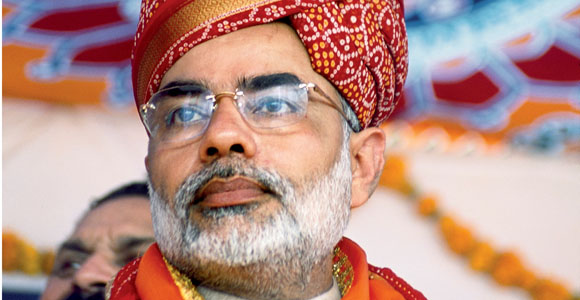
Ahmedabad, November 9: Gujarat Congress chief Arjun Modhwadia has compared chief minister Narendra Modi to a monkey, prompting the ruling BJP to file a complaint against him with the Election Commission.
Modhwadia also went on to equate Manmohan Singh with a lion and said that a monkey sitting on the top of a tree is trying to challenge the lion, hinting at the chief minister without taking his name.
"Modi doesn't have anything to say about what he had done for Gujarat in the past so many years, but every now and then he will blame Soniaji and Manmohan Singh and even challenge the PM to fight elections against him from Gujarat," Modhwadia said at a poll rally in Junagadh yesterday.
"He is like a monkey who is challenging the king of jungle to a duel from the top of a tree. He should know where he stands. King of jungle will not climb the tree but the monkey will have to come down to the land some time," he added.
BJP today filed a complaint with the Election Commission against Modhwadia for breach of model code of conduct over the remark.
"On the basis of media reports we have filed a complaint against Arjun Modhwadia and submitted the video footage too," BJP leader Parendu Bhagat said here.
BJP spokesman Ravi Shankar Prasad described Modhwadia's jibe at Modi as "very unfortunate".
"I donnt to give importance to such-substandard statement by commenting on it. It is for Congress to anwser if such comments about a popular chief minister like Narendra Modi suits a senior Congress leader," Prasad added.
Targeting Modi further, Modhwadia also said "If our Prime Minister goes to the US, (US President) Obama will come to receive him at the airport. But our man (Modi) is not even given visa to enter that country". The US had denied Modi visa in the aftermath of 2002 Gujarat riots.





Comments
Add new comment